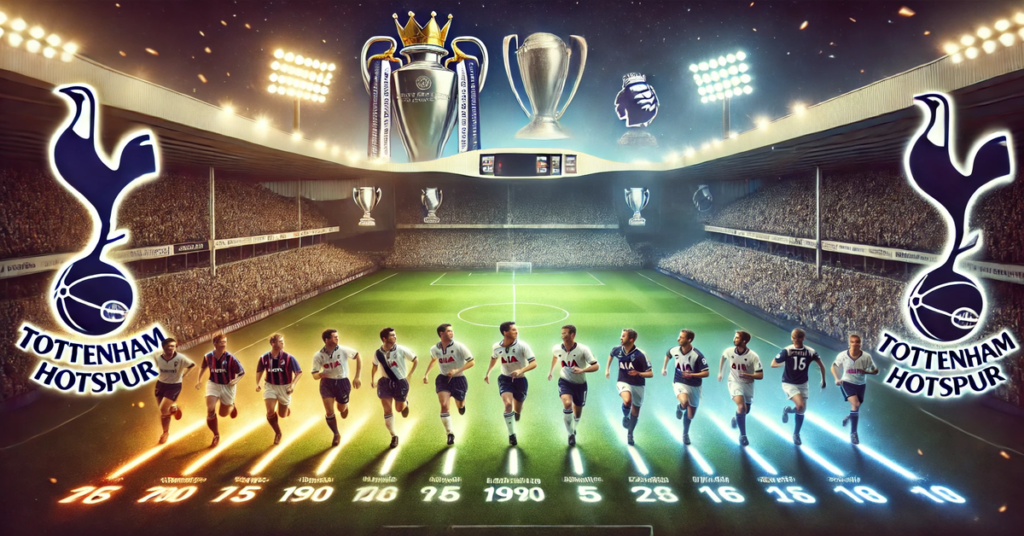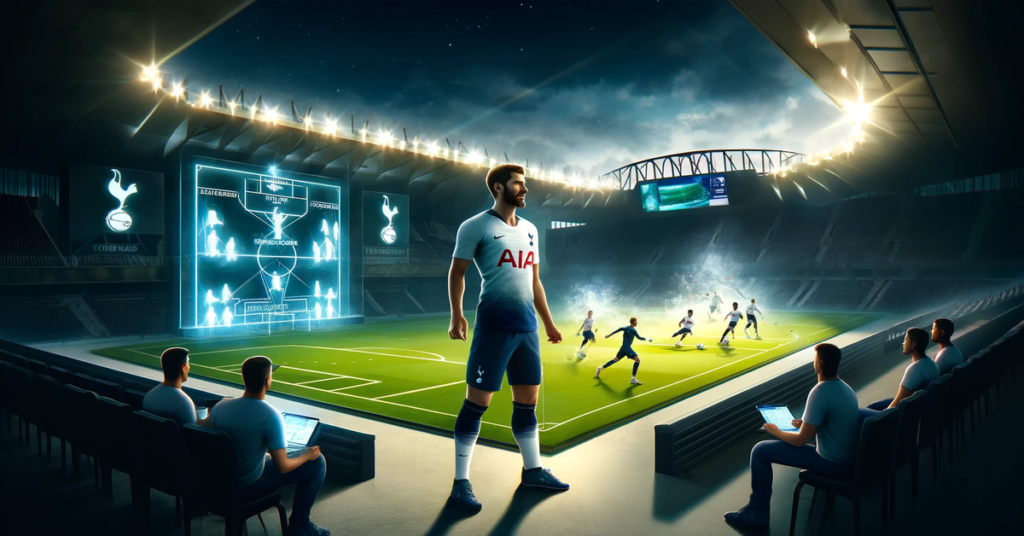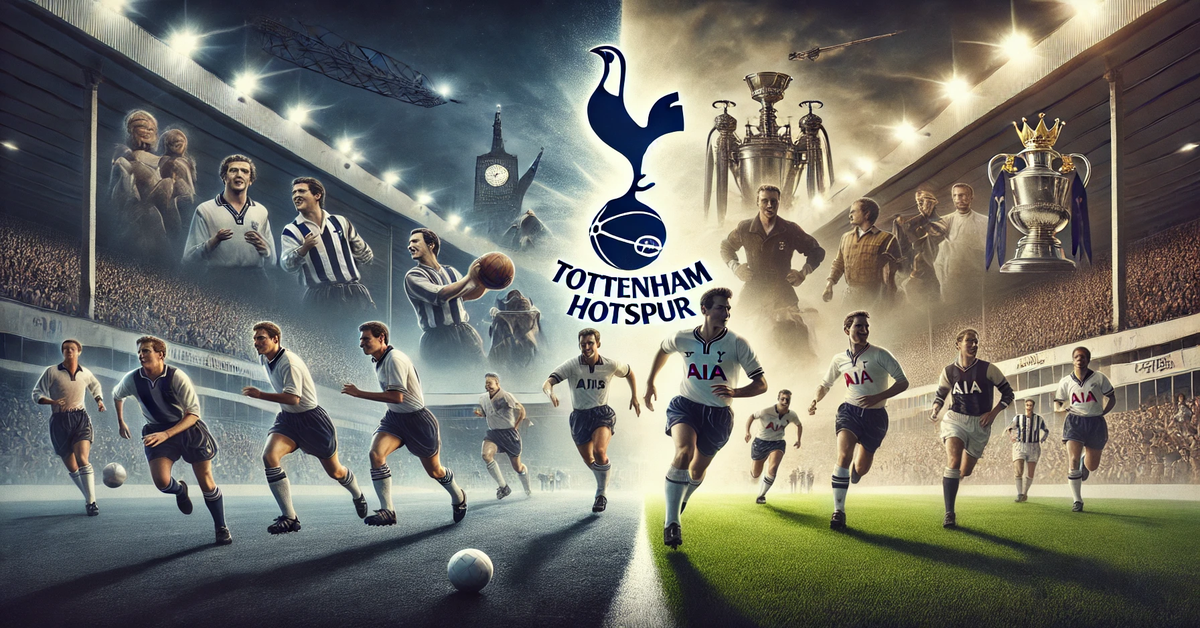Tottenham Hotspur Standings: Look at Their Journey in Football
Tottenham Standings Football Club, affectionately known as Spurs, is one of the most storied and respected clubs in English football. With a history dating back to 1882, the North London team has seen numerous ups and downs, making their position in league standings a reflection of their dedication, management strategies, and player performances. This article will delve into the evolution of Tottenham’s league standings, their achievements in various competitions, factors influencing their performance, and an outlook on what lies ahead for the club.
A Brief History of Tottenham Hotspur
Tottenham Hotspur was founded in 1882 by a group of schoolboys and has grown into one of the most iconic teams in English football. Their history is decorated with notable successes, including multiple FA Cups, League Cups, and European honors. The club’s motto, “To Dare Is To Do,” signifies its ambitious spirit. With White Hart Lane as their historic home for over a century, and now the state-of-the-art Tottenham Hotspur Stadium, Spurs continue to strive for glory.
The club’s major achievements include:
- 8 FA Cup titles (as of the last update)
- 4 League Cups
- 2 UEFA Cups (now known as the UEFA Europa League)
- 1 European Cup Winners’ Cup
These achievements contribute to the club’s reputation and position in the standings, not just in England but across Europe.
Tottenham’s Historical Standings in the Premier League Era
The formation of the Premier League in 1992 marked a new era for English football. Tottenham standings in the early Premier League years were inconsistent, often finishing mid-table. However, under different managers and with strategic player signings, they gradually rose in prominence.

Key Premier League Standings:
- 1992–1993 to 1999–2000: Tottenham struggled to break into the top six, with finishes ranging between 7th and 14th.
- 2000–2010: The club began to show signs of improvement, especially after Martin Jol’s management tenure and the arrival of Harry Redknapp in 2008. They finished 4th in 2009–2010, earning their first-ever UEFA Champions League qualification.
- 2010–2020: This period marked Tottenham’s most successful spell in the Premier League era, thanks in large part to Mauricio Pochettino’s leadership. They consistently finished in the top four and reached the UEFA Champions League final in 2019.
- 2020-Present: Following managerial changes after Pochettino’s departure, Tottenham have experienced mixed fortunes, fluctuating between competing for European qualification and mid-table finishes.
Notable Seasons and Key Standings
2009-2010: The Breakthrough Season
Under Harry Redknapp’s guidance, Tottenham standings secured a 4th-place finish in the Premier League, qualifying for the UEFA Champions League for the first time. This was a pivotal moment for the club as it symbolized their rise among the elite teams.
2015-2016: A Title Challenge
Mauricio Pochettino’s team came close to winning their first league title since 1961. They were serious contenders until the final weeks of the season, ultimately finishing 3rd behind Leicester City and Arsenal. This season established them as a formidable force in English football.
2016-2017: Best Premier League Finish
Tottenham standings achieved their best Premier League finish to date under Pochettino, securing 2nd place behind champions Chelsea. With a talented squad led by Harry Kane, Dele Alli, and Christian Eriksen, Spurs displayed consistency and flair.
2018-2019: Champions League Final
Although their league standing was 4th, the highlight of this season was their remarkable run to the UEFA Champions League final. They defeated European giants like Manchester City and Ajax in dramatic fashion before falling to Liverpool in the final.
2022-2023: Revival and Aspirations
With Antonio Conte at the helm, Tottenham standings aimed to return to top-four contention and secure Champions League football. They strengthened their squad with key signings, reflecting their ambition to maintain competitive standings.
Factors Influencing Tottenham’s Standings
Several factors contribute to Tottenham’s fluctuating positions in the standings. These include:
1. Management and Coaching
The managerial approach greatly impacts Tottenham’s performance. Pochettino’s emphasis on youth development and high-pressing football led to consistent top-four finishes, while Redknapp’s pragmatic approach brought immediate results. Recent managerial appointments, including Conte and Jose Mourinho, demonstrate the club’s desire for quick success.
2. Player Performance and Transfers
The quality of players, along with strategic signings, plays a crucial role. Harry Kane’s prolific goal-scoring, combined with standout performances from Son Heung-min, has been instrumental in Tottenham’s success. However, periods of poor recruitment or lack of depth have occasionally hindered their progress.
3. Injuries and Squad Depth
Injuries to key players have affected their league campaigns on several occasions. For instance, injuries to Kane and other key players during the 2019-2020 season saw them miss out on Champions League qualification.
4. Competition from Rivals
The Premier League’s competitive nature means that Tottenham faces tough competition from other top clubs like Manchester City, Liverpool, Chelsea, and Arsenal. The depth and financial power of rivals often impact Spurs’ final league positions.
5. European Commitments
Balancing domestic and European competitions is another factor affecting Tottenham’s standings. Deep runs in European tournaments can either provide momentum or lead to fatigue and injuries, impacting their league form.
Analyzing Tottenham’s Recent Form and Outlook
As of recent seasons, Tottenham has demonstrated resilience despite managerial changes and financial challenges. The following areas highlight key aspects of their recent performances and future potential:

Defensive Reinforcements
Tottenham’s defensive frailties have often been their Achilles’ heel. Recent signings like Cristian Romero have helped solidify the backline, but consistent defensive performances are critical for maintaining a strong league position.
Midfield Creativity
The midfield has been an area of concern since the departures of Christian Eriksen and Mousa Dembélé. Strengthening this department through new signings and developing young talent is crucial for Tottenham’s progression.
Youth Development and Academy Prospects
Tottenham’s youth academy has produced several notable players, including Harry Kane and Oliver Skipp. Continued investment in youth development can ensure a steady pipeline of talent and long-term stability.
Financial Strategy and Stadium Revenue
The opening of the Tottenham Hotspur Stadium in 2019 has boosted the club’s revenue streams, providing funds for future investments. However, careful financial management is necessary to balance debts from the stadium construction with on-field success.
Managerial Stability
Achieving long-term stability in the managerial position is key. Frequent changes in management have affected team morale and consistency. Building a long-term vision under a capable manager can help Spurs achieve sustained success.
The Importance of European Qualification
Securing European qualification, particularly for the UEFA Champions League, is a priority for Tottenham. Playing in Europe not only enhances the club’s prestige but also generates significant revenue and attracts top talent. Consistent participation in European competitions strengthens their chances of improving league standings and achieving long-term growth.
Tottenham’s Rivals and Their Impact on Standings
North London rivals Arsenal have always been a significant factor in Tottenham’s standings. The intense rivalry often dictates the pressure and expectations surrounding key matches. Similarly, competition from top-six clubs like Manchester United, Chelsea, and Liverpool adds to the challenge of securing a strong league finish.
The Premier League’s competitive balance means that even mid-table teams pose a threat, making consistency a critical factor in maintaining favorable standings.
Predictions and Future Prospects
Tottenham’s future standings depend on several key factors:
- Managerial Approach: If Antonio Conte or future managers build on a clear tactical vision, Tottenham could consistently challenge for top-four finishes.
- Squad Depth: Strengthening the squad and ensuring reliable backup options will help them contend with injuries and fatigue.
- Youth Integration: Developing young players through the academy and integrating them into the first team will be crucial for long-term success.
- Transfer Strategy: Effective recruitment, particularly in defense and midfield, will determine their ability to compete at the highest level.
Conclusion
Tottenham Hotspur’s standings in recent years reflect their journey of growth, challenges, and aspirations. With a strong fan base, a modern stadium, and talented players, Spurs have the potential to remain a top contender in English football. However, achieving consistent success will require strategic planning, managerial stability, and continued investment in talent.
As Tottenham strives to secure Champions League football and challenge for domestic trophies, their league standings will remain a barometer of their progress. Whether they can return to their peak performance of the mid-2010s depends on how effectively they address their current challenges and capitalize on future opportunities.
FAQs
1. What is Tottenham Hotspur’s best Premier League finish?
Tottenham’s best Premier League finish was 2nd place during the 2016-2017 season under manager Mauricio Pochettino.
2. How many times has Tottenham qualified for the UEFA Champions League?
As of the most recent updates, Tottenham has qualified for the UEFA Champions League several times, with their first qualification occurring in the 2009-2010 season.
3. What is Tottenham’s biggest rival in the Premier League?
Tottenham’s biggest rival is Arsenal, with whom they contest the North London Derby.
4. What was Tottenham’s most successful European campaign?
Tottenham’s most successful European campaign was reaching the UEFA Champions League final in the 2018-2019 season, where they lost to Liverpool.
5. Which players have been crucial to Tottenham’s success in recent years?
Key players like Harry Kane, Son Heung-min, Hugo Lloris, and Christian Eriksen have been instrumental in Tottenham’s success.
6. How does the new Tottenham Hotspur Stadium impact their future prospects?
The state-of-the-art stadium enhances the club’s revenue through ticket sales, events, and sponsorships, providing financial resources for player acquisitions and long-term growth.



